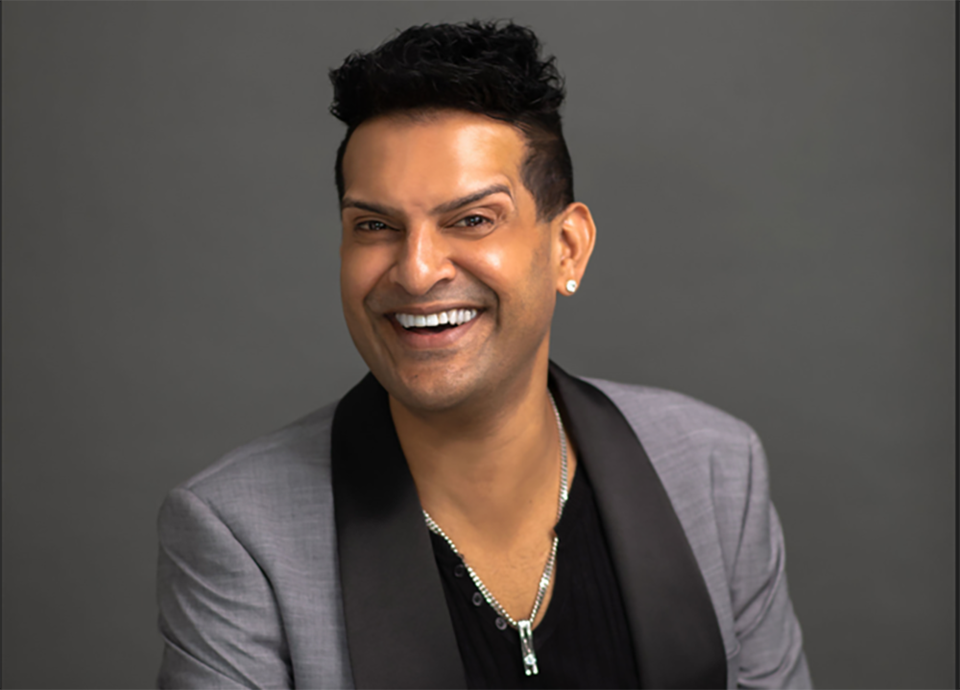The City of Burnaby’s new manager for equity, diversity and inclusion (EDI) is no stranger to making waves in his community.
Vishad Deeplaul and his husband sparked a legal battle in their home country of South Africa that changed the country’s labour laws regarding parental leave.
Deeplaul, a Coquitlam resident since 2015, was hired by the City of Burnaby in August to create internal workplace policies supporting equity initiatives for city staff.
Fostering belonging at work
His first major project is an internal EDI assessment, from which the city will create policies.
Deeplaul said the work involves recognizing gaps and promoting diversity within the workplace.
“We want to foster a work environment where everyone feels a sense of belonging because there’s no doubt when you feel like you belong somewhere, it becomes more meaningful for you,” he said.
“The only way we can actually create this is if we take in the ideas, suggestions that come from our staff themselves, in creating this strategy that’s going to work collectively for the entire internal staff.”
Deeplaul said the report will likely bring a piece of learning and education, but noted that when it comes to equity, diversity and inclusion work, it’s never referred to as “training.”
“You don’t train somebody in EDI work, you want to educate somebody, and you want somebody to learn.”
Internal communication will be a “very, very important piece of the strategy.”
Deeplaul offered an example. If staff must review a certain training booklet, the city must ensure all employees are able to access it, including staff whose shifts being at 8 p.m.
“If we want to be truly, truly inclusive we have to make sure that that staff also get that booklet.”
The education can also take the form of group workshops of varying sizes to online learning modules.
‘A diverse mix of voices’
Deeplaul said equity, diversity and inclusion should be something every employee has a stake in.
“It’s a diverse mix of voices from across the city and at all levels from top to bottom,” said Deeplaul.
“All the voices lead to better discussions, better decisions, and therefore better outcomes.”
Anita Bhandari, the city’s chief human resources officer, said it’s important the city create a workplace and community where everyone feels like they belong.
“We must continue to break down barriers if we are to fully embrace equity, diversity and inclusion,” Anita Bhandari told the NOW in an email.
“Creating this new position is about truly embodying equity, diversity and inclusion at the heart of everything we do.”
Deeplaul noted workplace EDI initiatives often run by volunteer labour rather than as an official staff position, with staff members who donate their time to causes they care about personally.
He said seeing that the city values the diversity of the community as well as its workforce is encouraging.
According to Deeplaul, equity, diversity and inclusion can be misunderstood as simply one or two issues that a person cares about particularly, when it’s an all-encompassing field, strengthened by continuing education.
“For example, I’m a same-sex couple dad, we’re two dads. So, naturally, if I had to, in the past, think of EDI work, my mind probably went to rights for same-sex parents, it went probably to Pride, it went to those sort of aspects,” Deeplaul said.
“That naturally will happen, but it’s also knowing the broader terminology of where EDI sits, and that again will only be through education.”
Lived experience informing EDI
Deeplaul said he believes EDI work comes from lived experience.
“I think when you have lived experience, you know what it is to advocate, you know what it is and how meaningful it is to have a workplace that is inclusive.”
Even his understanding of advocacy comes from his past experiences.
He owned an events management company in South Africa for 18 years, where he worked alongside non-profits and charities.
“They all did great work, and I think that’s where my idea of advocacy came from.”
The NOW asked how implementing EDI practices can challenge systemic prejudice and racism.
Deeplaul said it boils down to learning and education.
“If we educate ourselves on currently where we are … we want to move forward successfully, that’s the most important piece.”





.png;w=120;h=80;mode=crop)